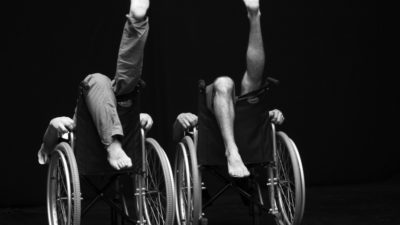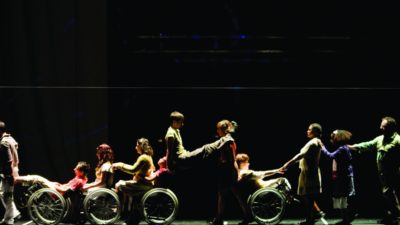Maria Vlachou is Director of Acesso Cultura (Access Culture), a non-profit association of culture professionals and people interested in accessibility issues, based in Almada, Portugal. In the first of a series of country profiles by local experts, Vlachou gives an overview of the arts & disability and access initiatives in Portugal.
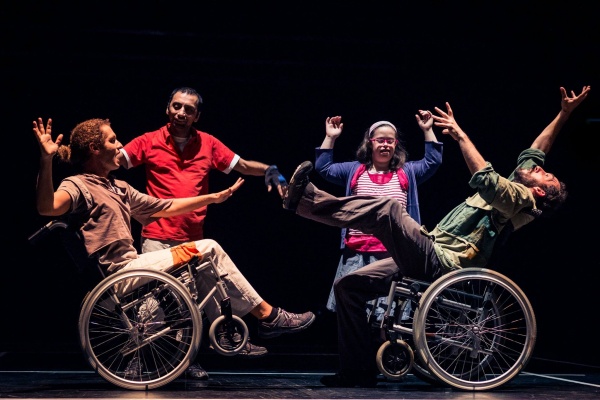
I came into the world of disability arts about 10 years ago, when I took the position of Communications Director at São Luiz Municipal Theatre in Lisbon. At that time, I got to know and work with two dance companies, Dançando com a Diferença (based on the island of Madera) and Vo’Arte (based in Lisbon). Later on, after founding Access Culture in 2013, I had the opportunity to meet with more artists and arts managers working in this field.
Disability arts is not new to Portugal. At the same time, this field doesn’t seem to have grown much. CRINABEL Teatro (a theatre company working with actors with learning difficulties) celebrated its 30th anniversary in 2016 and on that occasion, it stepped for the first time on the stage of the National Theatre D. Maria II in Lisbon. Dance company PLURAL, working with physically impaired people, was created in 1995. Dançando com a Diferença and Vo’Arte (through its project CIM – Integrated Multidisciplinary Company), both working with learning-disabled and physically impaired dancers, have been around for approximately 10 years, although their work in the field of inclusive dance goes further back.
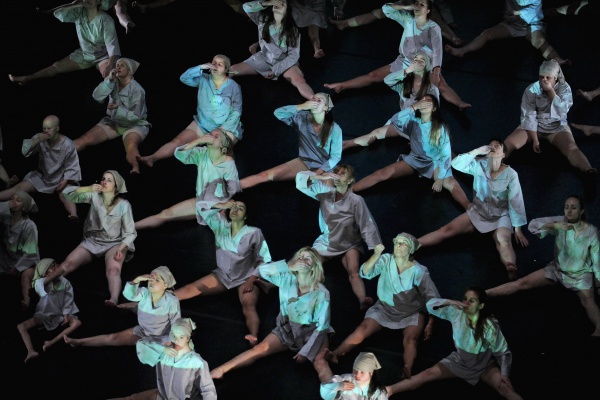
Considering the context in which these companies operate, it should be mentioned that, while Dançando com a Diferença and Vo’Arte are artistic organisations, CRINABEL Teatro and PLURAL Dance Company are the artistic projects of two social organisations. This means that the former have been able to get funding from the budget for Culture, while the latter haven’t. Regardless, all of them have been developing projects with professional artists (choreographers, dancers, actors, directors, playwrights).
This context refers also to individual artists. Although there is no official register, there are very few professional disabled artists working in Portugal (only 3 or 4 come to mind), whereas the rest of the people working with these companies are individuals who cannot live from their work (as it is not constant or stable) and, thus, cannot risk losing their social welfare benefits.
Both these issues – a survey to identify professional disabled artists in Portugal in order to have a clear idea of the landscape and to support them with their extra costs; as well as the fiscal and social welfare benefits for disabled people who participate regularly in artistic projects – have been raised by Access Culture in meetings with the Portuguese Arts Council (DGARTES).
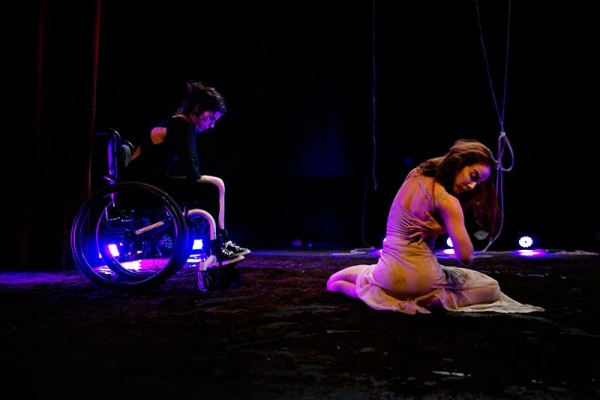
In its current form, DGARTES has shown a particular interest and concern in what relates to the accessibility of the projects it supports, as well as support for disability arts. The words “access” and “accessibility” are frequently referenced in the recently revised regulation for applications for public funding. Public funding is, of course, scarce in Portugal (for culture in general) and reliance on private donors is an actual and pressing need.
Apart from what is presented on stage, it is also relevant to mention the work undertaken by the above-mentioned organisations and artists in order to involve ordinary disabled people with the arts, inspiring, perhaps, future artists in taking this option in life. They organize classes, workshops, festivals, conferences, etc. There are also projects such as Lab in Dança, promoted annually by Santa Maria da Feira City Council (in the north of Portugal), where choreographers Clara Andermatt and Henrique Amoedo provide a number of training and performing experiences to a diverse group of disabled people.
Currently, in Portugal, things are moving at different speeds. Perhaps just a little bit faster for some of the companies mentioned here, which have now become more stable and have gained recognition along the years, so that we are able to see them (although not frequently enough) on the stage of some national and municipal theatres, apart from their performances in other countries. In 2017, and with the support of DGARTES, Access Culture was responsible for organising the participation of three of these companies (five in total) in the IETM plenary meeting in Brussels, allowing international colleagues to get to know the work that is taking place in Portugal and vice-versa and, thus, establishing very useful contacts.
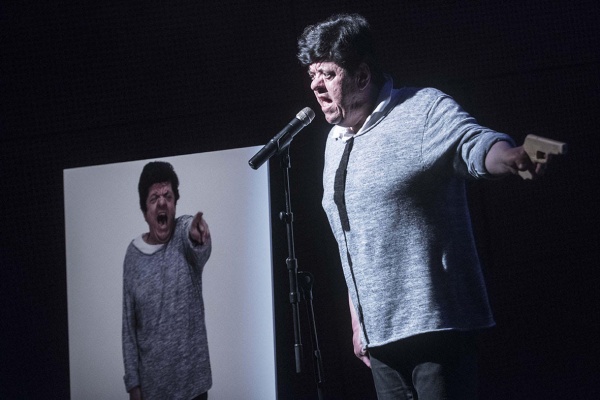
Things are not moving fast enough, though, in what concerns the recognition of the disability arts field in the Portuguese cultural landscape as an artistic field of quality, both relation to companies and individual artists. This work is still presented as “special” by the media (and it is seen as such by audiences). Quite a few artistic directors, as well, consider that they have done their part when they programme one performance in a season, ticking the box of disability until the following season. Funding is scarce. Disabled artists have also got few possibilities to work, as mentioned before, and no support for their extra costs in exercising their profession. We should also mention that rarely or never are there plays presenting the stories of disabled people (and the consequent need of employing disabled artists – although all over the world the majority of these roles, when they exist, are given to non-disabled artists). Disabled people are rather invisible in everyday life and on stage too. Finally, despite an excellent law, a number of cultural venues in Portugal are not accessible, neither for audiences nor for artists. Access Culture is trying to help raise awareness regarding all of these issues.
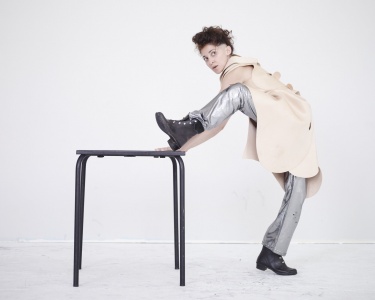
The situation might look rather bleak, but we don’t lack a generous dose of optimism. The work of Portuguese companies in this field is becoming a reference, as we were able to verify in the IETM meeting in Brussels, especially in what concerns people with learning difficulties; it is also more visible at a national level and often makes headlines. DGARTES is now more interested and involved. We feel that we are all working together in order to take disability arts a step (or more) further.
Another very positive fact, which might help boost disability arts in the future, is that conditions in theatres and festivals are getting better for disabled people, and consequently their families and friends. It is difficult for a disabled person to consider a career in the arts if he/she has never been inside a theatre. The fact that the services of audio-description, Portuguese sign language and relaxed sessions are steadily growing and that there is a permanent offer of accessible performances, although very concentrated still in Lisbon and Oporto, is definitely an important step towards more inclusive cultural spaces.
For more information about Acesso Cultura, visit their website.


